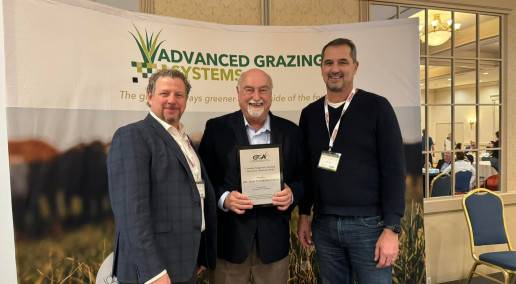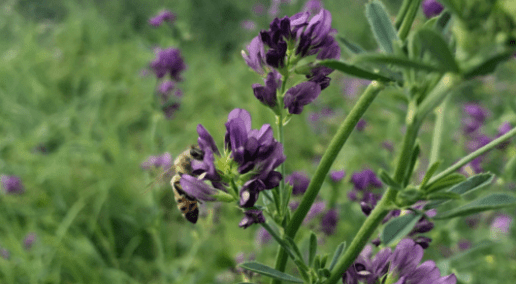During the afternoon session on Nov. 30 of the CFGA’s 14th Annual Conference, Josh Callen with the Hoyt Report presented on current forage export market conditions, covering hay market pricing, insights and analysis in Mid-West United States. Josh went over the status of forage markets in general, then into pricing in the western U.S., finishing with some forecasting of what’s coming next.
At the time of the conference, Josh said the export market was experiencing whiplash due to tough years of extreme peaks and valleys post-pandemic. This was because of shipping disruptions from the pandemic, the war in Ukraine, commodity inflation, U.S., Canadian and European drought in 2022 and the U.S. dollar strengthening. In 2022, the market saw the highest hay prices on record. In 2023, the prices dropped.
The strength of the U.S. dollar is a huge factor as it effects where importers choose to buy from. Currency inflation coupled with price inflation saw prices rise 70 per cent causing importers to cut back on what they were purchasing from the U.S. This helps non-US exporters access international forage markets more.
The four biggest hay export countries are the U.S., Spain, Australia and Canada. In 2021 and 2022, they had record export years globally. This fell off in 2023 because the price was so high. Spain exports decreased the most (30 per cent) due to their drought, followed by rains and poor quality. Canada only came down two per cent from the previous year.
Canadian hay exports experienced only 2% total volume decrease, with most sold to the U.S. and Japan in 2023. Asian markets were importing less, with Japan especially trying not to rely on importing hay and instead opting to grow their own forage. The total hay export value in Canada increased by four per cent due to higher pricing.
Destinations of Canadian export hay were increasingly going to Florida over the past four years for the horse market. This is a steady market because it is a luxury market that is less effected by price fluctuations.
Over the past 20 years, China has become a main importer of U.S. alfalfa due to their growing dairy industry and the western diet increasing. But it began dropping off in 2022 and continued to drop in 2023. Meanwhile, Timothy hay exports remained pretty consistent throughout.
Overall, the takeaway was that 2022 was a good year for dairies, while 2023 has been terrible. Beef prices set record highs but there was plenty of grass. Water outlook had improved in the West and Europe. The hay exports outlook depends largely on China’s economy and if their hay import will continue to drop.
2024 annual conference
The CFGA is heading to Guelph, Ontario Dec. 3 to 6 for its 15th annual conference. The CFGA is excited to partner with the Ontario Forage Council on this not-to-be-missed event that will celebrate the important environmental and economic role forages and grasslands play in Ontario, across the country and around the globe.
This year’s theme is Roots to Success: The Foundation of Resilient Agriculture. During this not-to-be-missed four-day event, attendees will learn about exciting and cutting-edge happenings in the forage sector and gain valuable information and inspiration for anyone involved in the forage and grassland sectors across the country. Visit the conference website for more details.




Leave a Comment